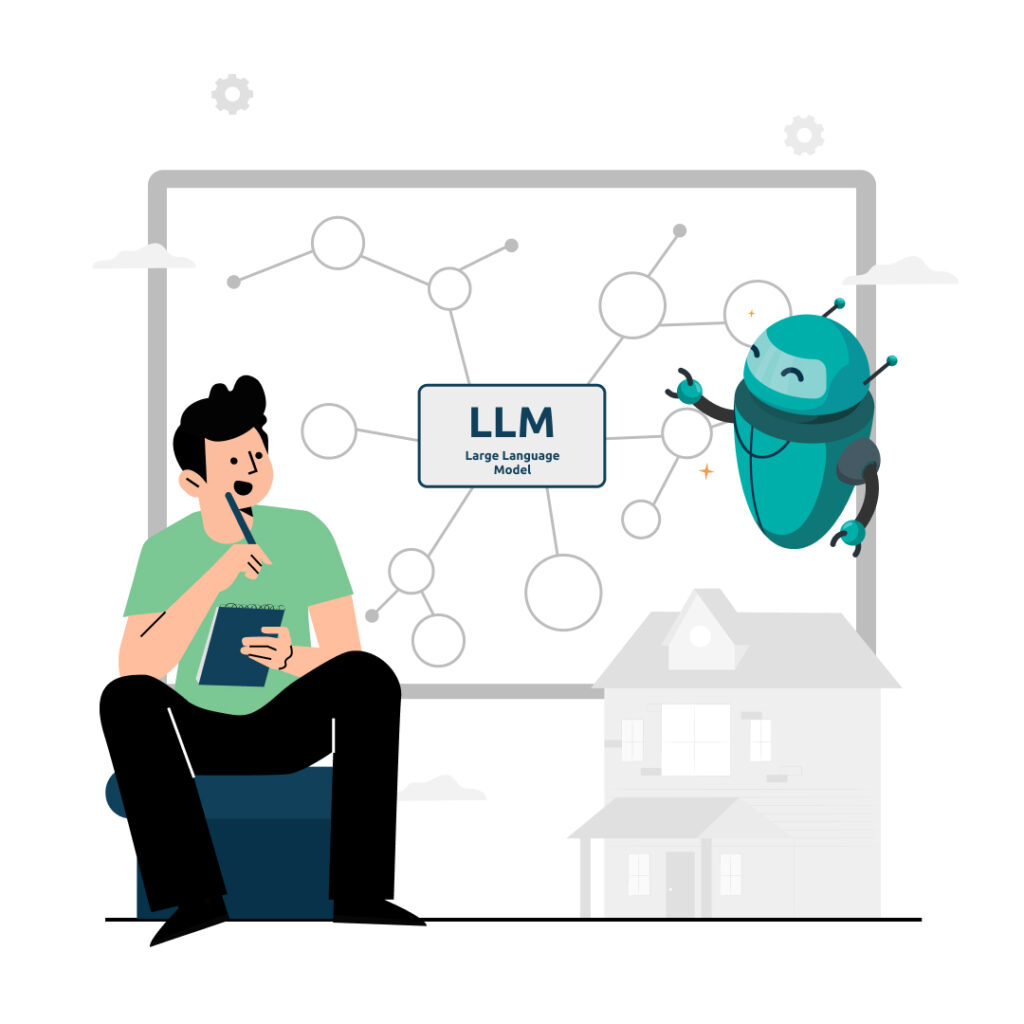Choosing the Right Software House for Your Property Management System
Property management can be a complex and demanding task, requiring meticulous organization and efficient handling of various processes. In today’s digital age, property managers are increasingly turning to technology to streamline their operations and enhance efficiency. This is where Property Management Systems (PMS) come into play. These software solutions are designed to automate and simplify tasks such as rent collection, maintenance tracking, and tenant management, among others.
Overview of Property Management Systems (PMS):
Property Management Systems, commonly referred to as PMS, are software platforms specifically developed to assist property managers in effectively managing their properties. These systems offer a wide range of features and functionalities tailored to the needs of property management professionals. From tracking rental payments to generating financial reports, PMS platforms are designed to streamline operations and improve productivity.
PMS platforms typically include modules for various aspects of property management, such as:
- Tenant and lease management
- Rent collection and invoicing
- Maintenance and repair tracking
- Accounting and financial management
- Reporting and analytics
By centralizing all property-related information and processes into a single platform, PMS systems enable property managers to efficiently oversee their portfolios and make informed decisions.
Importance of Selecting the Right Software House:
Choosing the right software house to develop your Property Management System is crucial for the success of your property management operations. The software house you select will not only be responsible for developing the platform but also for providing ongoing support and maintenance. Here’s why selecting the right software house is essential:
Expertise and Experience
A reputable software house will have extensive experience in developing property management software. They will understand the unique requirements and challenges of the industry, allowing them to create a solution that meets your specific needs.
Quality of the Product
The quality of the PMS platform will ultimately depend on the expertise and capabilities of the software house that develops it. By choosing a reputable and experienced software house, you can ensure that the final product meets high standards of quality and reliability.
Long-term Support and Maintenance
Property Management Systems require ongoing support and maintenance to ensure smooth operation. Selecting a software house that offers comprehensive support services will ensure that any issues or concerns are promptly addressed, minimizing downtime and disruption to your business.
Scalability and Flexibility
As your property management business grows, your software needs may evolve. A reputable software house will offer scalable solutions that can grow with your business, allowing you to add new features and functionalities as needed.
Selecting the right software house is a critical decision that can have a significant impact on the success of your property management operations. By choosing a reputable and experienced software house, you can ensure that your Property Management System is developed to the highest standards of quality and reliability, providing you with the tools you need to effectively manage your properties.
Understanding Your Property Management Needs
When it comes to managing your properties effectively, understanding your unique requirements and priorities is essential. Whether you’re a seasoned property manager or just getting started in the industry, taking the time to assess your property portfolio and identify specific needs is the first step towards finding the right solutions. In this section, we’ll delve into the process of understanding your property management needs, covering aspects such as assessing your property portfolio, identifying specific requirements, and considering scalability and future growth.
Assessing Your Property Portfolio
Before diving into the world of property management software and solutions, it’s crucial to have a clear understanding of your property portfolio. Take stock of all the properties you manage, including details such as location, size, and type (residential, commercial, etc.). Assess the current status of each property, including occupancy rates, rental income, and any ongoing maintenance or management issues.
By conducting a thorough assessment of your property portfolio, you’ll gain valuable insights into the unique challenges and opportunities you face as a property manager. This information will serve as the foundation for identifying the specific requirements and priorities that need to be addressed through software solutions.
Identifying Specific Requirements
Once you have a clear understanding of your property portfolio, the next step is to identify your specific requirements and priorities. This involves taking a closer look at the day-to-day tasks and processes involved in property management and determining which areas could benefit from automation or improvement.
Consider factors such as:
- Tenant management: Do you need a system for tracking tenant information, leases, and rent payments?
- Maintenance and repairs: Are you looking for a solution to streamline maintenance requests and track repairs?
- Financial management: Do you need tools for invoicing, accounting, and financial reporting?
- Communication: Are you looking for ways to improve communication with tenants, contractors, and other stakeholders?
By identifying your specific requirements, you can narrow down your search for property management software solutions that are tailored to your needs. This will help ensure that you invest in a solution that addresses your most pressing challenges and provides tangible benefits to your business.
Scalability and Future Growth Considerations
In addition to addressing your current needs, it’s important to consider scalability and future growth when choosing property management software. As your property portfolio grows and evolves, your software needs may change as well. Look for solutions that offer scalability and flexibility, allowing you to add new properties, users, and features as needed.
Consider factors such as:
- Multi-property support: Does the software support managing multiple properties from a single interface?
- User access and permissions: Can you easily add new users and customize access levels as your team grows?
- Feature updates and upgrades: Does the software provider regularly update the platform with new features and improvements?
By choosing a scalable software solution, you can future-proof your property management operations and ensure that your software investment continues to provide value as your business expands.
In conclusion, understanding your property management needs is the first step towards finding the right software solutions. By assessing your property portfolio, identifying specific requirements, and considering scalability and future growth, you can make informed decisions that will benefit your business in the long run.
Evaluating Software House Expertise: A Guide for Property Managers
As a property manager, choosing the right software house to develop your Property Management System (PMS) is a crucial decision that can significantly impact the success of your operations. With numerous options available in the market, it’s essential to thoroughly evaluate the expertise and capabilities of potential software houses before making a decision. In this guide, we’ll explore the key factors to consider when evaluating software house expertise, including their experience in property management software development, portfolio review and case studies, and client testimonials and references.
Experience in Property Management Software Development
One of the first things to consider when evaluating a software house is their experience in developing property management software. Look for a company with a proven track record in the industry, preferably one that specializes in developing solutions specifically tailored to the needs of property managers.
Ask questions such as:
- How long has the software house been in business?
- What specific experience do they have in developing property management software?
- Have they worked with clients similar to your business size and needs?
A software house with extensive experience in property management software development will have a deep understanding of the industry’s unique requirements and challenges. They will be able to offer valuable insights and recommendations to help you develop a customized solution that meets your needs.
Portfolio Review and Case Studies
Reviewing the software house’s portfolio and case studies is another essential step in evaluating their expertise. Look for examples of past projects that are similar in scope and complexity to your own requirements. Pay attention to the features and functionalities implemented in each project and assess how well they align with your needs.
Key things to look for in a portfolio include:
- Diversity of projects: Does the software house have experience working with different types of property management businesses?
- Success stories: Are there any case studies highlighting successful implementations of their software solutions?
- Innovation and creativity: Does the portfolio showcase innovative solutions and unique approaches to solving property management challenges?
A robust portfolio with a variety of successful projects demonstrates the software house’s ability to deliver high-quality solutions that meet their clients’ needs.
Client Testimonials and References
Client testimonials and references provide valuable insights into the software house’s reputation and the quality of their services. Reach out to past and current clients to gather feedback on their experiences working with the software house. Ask specific questions about the software’s performance, the level of customer support provided, and any challenges encountered during implementation.
Considerations when reviewing client testimonials and references include:
- Overall satisfaction: Are clients satisfied with the software house’s services and the performance of their software solutions?
- Communication and responsiveness: How responsive is the software house to client inquiries and requests?
- Long-term relationships: Do clients continue to work with the software house over time, indicating a positive ongoing relationship?
Gathering feedback from multiple clients will give you a well-rounded understanding of the software house’s reputation and reliability.
Evaluating software house expertise is a critical step in selecting the right partner to develop your Property Management System. By considering factors such as experience in property management software development, portfolio review and case studies, and client testimonials and references, you can make an informed decision that will benefit your property management business in the long run.
Analyzing Software Features and Functionality: A Comprehensive Guide
Selecting the right software for your property management needs is a critical decision that requires careful consideration of various factors. Among these, analyzing the features and functionality of the software is paramount. In this guide, we’ll delve into the key aspects to consider when analyzing software features and functionality, including core features essential for property management, customization and integration capabilities, and user interface and experience.
Core Features Essential for Property Management
When evaluating property management software, it’s crucial to identify the core features that are essential for effectively managing your properties. These core features serve as the foundation of the software and should address key aspects of property management, such as:
- Tenant and lease management: Look for features that allow you to easily track tenant information, lease agreements, and rental payments.
- Maintenance and repair tracking: A robust property management system should include tools for managing maintenance requests, scheduling repairs, and tracking work orders.
- Financial management: Features such as invoicing, accounting, and budgeting tools are essential for maintaining financial transparency and accuracy.
- Reporting and analytics: The ability to generate customizable reports and analyze key performance metrics is crucial for making informed decisions and optimizing your property management processes.
When analyzing software features, consider how well each feature aligns with your specific needs and requirements. Look for solutions that offer a comprehensive set of core features tailored to the property management industry.
Customization and Integration Capabilities
No two property management businesses are exactly alike, which is why customization and integration capabilities are essential considerations when evaluating software options. Look for software solutions that offer flexibility and scalability, allowing you to customize the system to meet your unique needs.
Key things to consider include:
- Customizable workflows: Can you customize workflows and processes to align with your specific business requirements?
- Integration with third-party software: Does the software support integration with other tools and systems you currently use, such as accounting software or CRM platforms?
- Scalability: Is the software flexible enough to scale with your business as it grows and evolves?
By choosing a software solution with robust customization and integration capabilities, you can tailor the system to fit seamlessly into your existing workflows and maximize efficiency.
User Interface and Experience
The user interface (UI) and overall user experience (UX) of the software play a significant role in its usability and adoption within your organization. A well-designed and intuitive interface can streamline processes, increase productivity, and reduce the learning curve for users.
Considerations when evaluating UI and UX include:
- Ease of use: Is the software intuitive and easy to navigate, even for users with limited technical expertise?
- Accessibility: Does the software support accessibility features such as keyboard shortcuts and screen reader compatibility?
- Mobile compatibility: In today’s mobile-driven world, it’s essential to choose software that offers a responsive design and mobile app capabilities for on-the-go access.
By prioritizing user interface and experience, you can ensure that your team members can quickly adapt to the new software and fully leverage its capabilities to streamline property management processes.
Assessing Security and Compliance: Safeguarding Your Property Management Data
Protecting sensitive data and ensuring compliance with industry regulations are paramount. With the increasing reliance on technology in property management, assessing security and compliance measures within software solutions is crucial. In this comprehensive guide, we’ll explore the key aspects of assessing security and compliance, including data security measures, compliance with industry regulations, and disaster recovery and backup solutions.
Data Security Measures
Data security is of utmost importance when it comes to property management, as it involves handling sensitive information such as tenant records, financial transactions, and legal documents. When evaluating software solutions, it’s essential to assess the data security measures implemented by the provider to safeguard your information.
Key considerations include:
- Encryption: Look for software solutions that utilize encryption protocols to protect data both in transit and at rest, ensuring that it remains secure from unauthorized access.
- Access controls: Ensure that the software offers robust access control mechanisms, allowing you to restrict access to sensitive information based on user roles and permissions.
- Regular audits and assessments: Choose a software provider that conducts regular security audits and assessments to identify and address potential vulnerabilities proactively.
- Data residency and compliance: Verify that the software provider complies with relevant data residency laws and regulations, ensuring that your data is stored and processed in compliance with legal requirements.
By prioritizing data security measures, you can minimize the risk of data breaches and protect your property management data from unauthorized access or exploitation.
Compliance with Industry Regulations
Property management is subject to various industry regulations and legal requirements, making compliance a critical consideration when selecting software solutions. Ensure that the software provider complies with relevant industry regulations, such as the General Data Protection Regulation (GDPR) or the Payment Card Industry Data Security Standard (PCI DSS), depending on your geographic location and business operations.
Key areas of compliance to consider include:
- Data privacy: Verify that the software provider adheres to data privacy regulations and guidelines, protecting the privacy and confidentiality of tenant and client information.
- Financial regulations: If your property management involves handling financial transactions, ensure that the software solution complies with relevant financial regulations, such as the Sarbanes-Oxley Act (SOX) or the Dodd-Frank Wall Street Reform and Consumer Protection Act.
- Legal requirements: Consider any specific legal requirements or regulations applicable to your industry or geographic location, such as landlord-tenant laws or housing regulations.
Choosing a software provider that prioritizes compliance with industry regulations will help you mitigate legal risks and ensure that your property management operations remain in accordance with applicable laws and guidelines.
Disaster Recovery and Backup Solutions
In addition to data security and compliance, disaster recovery and backup solutions are essential for safeguarding your property management data against unforeseen events such as natural disasters, cyber-attacks, or hardware failures. Assess the disaster recovery and backup capabilities offered by the software provider to ensure the continuity of your operations in the event of a data loss or system outage.
Key features to look for include:
- Regular backups: Choose a software solution that offers automated and regular backups of your data, allowing you to restore information quickly in the event of a disaster.
- Redundancy and failover: Verify that the software provider has redundant systems and failover mechanisms in place to ensure high availability and minimize downtime.
- Disaster recovery plans: Evaluate the software provider’s disaster recovery plans and procedures to assess their readiness to respond to potential emergencies and restore operations promptly.
By prioritizing disaster recovery and backup solutions, you can minimize the impact of unforeseen events on your property management operations and ensure the integrity and availability of your data.
In conclusion, assessing security and compliance measures within property management software is essential for safeguarding your data and ensuring regulatory compliance. By considering factors such as data security measures, compliance with industry regulations, and disaster recovery and backup solutions, you can select a software solution that provides peace of mind and protects your property management data from potential threats and vulnerabilities.
Cost and ROI Considerations: Making Informed Decisions for Your Property Management Software
Choosing the right property management software involves more than just assessing features and functionality; it also requires careful consideration of cost and return on investment (ROI). In this guide, we’ll explore the various cost and ROI considerations to help you make informed decisions for your property management software needs.
Initial Investment vs. Long-term Value
When evaluating property management software, it’s essential to consider both the initial investment and the long-term value it will provide to your business. While upfront costs may seem significant, it’s crucial to assess the potential return on investment over time.
Consider the following factors:
- Upfront costs: Evaluate the initial cost of purchasing and implementing the software, including any setup fees, licensing fees, or implementation costs.
- Long-term savings: Consider the potential cost savings and efficiency gains that the software will provide over time. For example, streamlined processes, reduced administrative overhead, and improved tenant satisfaction can all contribute to long-term value.
- Scalability: Choose a software solution that offers scalability and flexibility, allowing you to add new properties or users as your business grows without significant additional costs.
By considering both the upfront investment and the long-term value, you can make a more informed decision that aligns with your budget and business objectives.
Pricing Models and Flexibility
Property management software providers typically offer various pricing models to accommodate different business needs and budgets. When evaluating pricing options, it’s essential to consider not only the cost but also the flexibility and scalability of the pricing model.
Key pricing models to consider include:
- Subscription-based pricing: Many software providers offer subscription-based pricing, where you pay a monthly or annual fee for access to the software. Evaluate the pricing tiers and features included in each plan to choose the one that best fits your needs.
- Per-property or per-unit pricing: Some software providers charge based on the number of properties or units you manage. Consider whether this pricing model aligns with the size and scale of your property management portfolio.
- Custom pricing: For larger enterprises or organizations with unique requirements, some software providers offer custom pricing options. Work with the provider to negotiate a pricing structure that meets your specific needs and budget.
When evaluating pricing models, consider factors such as contract terms, payment options, and any additional fees or charges that may apply.
Calculating Return on Investment (ROI)
Calculating return on investment (ROI) is essential for assessing the financial impact of your property management software investment. By quantifying the benefits and cost savings generated by the software, you can determine whether it provides a positive ROI for your business.
To calculate ROI, consider the following steps:
- Identify key metrics: Determine which metrics are most important for assessing the impact of the software, such as cost savings, efficiency gains, or revenue growth.
- Estimate costs and benefits: Estimate the upfront and ongoing costs of the software, as well as the potential benefits it will provide in terms of time savings, reduced expenses, or increased revenue.
- Calculate ROI: Subtract the total costs from the total benefits and divide by the total costs to calculate the ROI as a percentage. A positive ROI indicates that the software investment is generating value for your business.
By calculating ROI, you can make data-driven decisions about your property management software investment and ensure that it delivers tangible benefits to your business.
In conclusion, cost and ROI considerations are essential factors to evaluate when selecting property management software. By considering factors such as initial investment vs. long-term value, pricing models and flexibility, and calculating return on investment, you can make informed decisions that align with your budget and business objectives, ultimately driving success and profitability for your property management operations.
Support and Maintenance Services: Ensuring Smooth Operations for Your Property Management Software
When investing in property management software, it’s not just about the features and functionalities – it’s also crucial to consider the support and maintenance services offered by the provider. In this guide, we’ll explore the importance of support and maintenance services and discuss key factors to consider when evaluating them for your property management software needs.
Availability of Technical Support
Technical support is a critical aspect of any software investment, as it ensures that you have access to assistance when encountering issues or needing guidance. When evaluating property management software providers, consider the availability and quality of their technical support services.
Key factors to consider include:
- 24/7 availability: Choose a software provider that offers round-the-clock technical support, ensuring that assistance is available whenever you need it, regardless of the time zone or location.
- Response time: Assess the provider’s average response time to support inquiries and tickets. Look for a provider that guarantees quick response times and timely resolution of issues.
- Expertise and knowledge: Ensure that the technical support team is knowledgeable and experienced in property management software, allowing them to provide effective solutions and troubleshooting assistance.
By choosing a software provider with reliable technical support services, you can minimize downtime and ensure smooth operations for your property management software.
Software Updates and Upgrades
Software updates and upgrades are essential for ensuring that your property management software remains current, secure, and equipped with the latest features and functionalities. When evaluating software providers, consider their approach to software updates and upgrades.
Key considerations include:
- Frequency of updates: Assess how frequently the software provider releases updates and upgrades. Look for a provider that offers regular updates to address bugs, security vulnerabilities, and performance issues.
- Ease of implementation: Consider how updates and upgrades are implemented and whether they require significant downtime or disruption to your operations. Choose a provider that offers seamless and hassle-free update processes.
- Long-term support: Ensure that the software provider commits to providing long-term support and maintenance for their software, including ongoing updates and upgrades as technology evolves.
By prioritizing software updates and upgrades, you can ensure that your property management software remains secure, efficient, and equipped with the latest features to meet your evolving needs.
Training and Onboarding Assistance
Effective training and onboarding are essential for maximizing the value of your property management software investment and ensuring that your team members can fully utilize its capabilities. When evaluating software providers, consider the training and onboarding assistance they offer.
Key considerations include:
- Comprehensive training programs: Look for software providers that offer comprehensive training programs tailored to your specific needs and requirements. This may include online tutorials, user guides, and interactive training sessions.
- Onboarding assistance: Assess the level of onboarding assistance provided by the software provider, including assistance with data migration, setup, and configuration. Choose a provider that offers hands-on support to ensure a smooth transition to the new software.
- Ongoing support: Ensure that the software provider offers ongoing support and assistance to help your team members troubleshoot issues, answer questions, and optimize their use of the software over time.
By investing in effective training and onboarding assistance, you can minimize the learning curve for your team members and maximize the benefits of your property management software investment.
Support and maintenance services are essential considerations when selecting property management software. By prioritizing factors such as availability of technical support, software updates and upgrades, and training and onboarding assistance, you can ensure smooth operations and maximize the value of your software investment for your property management needs.
Compatibility and Integration: Enhancing Efficiency in Property Management Software
Compatibility and integration capabilities are crucial factors to consider when you are selecting property management software. In today’s interconnected world, the ability of software systems to seamlessly work together can significantly enhance efficiency and productivity. In this guide, we’ll explore the importance of compatibility and integration in property management software and discuss key considerations when evaluating these aspects.
Compatibility with Existing Systems
Compatibility with existing systems is essential for ensuring a smooth transition to new property management software and minimizing disruptions to your operations. When evaluating software options, consider how well they integrate with your existing systems and infrastructure.
Key factors to consider include:
- Compatibility with accounting software: Verify that the property management software integrates seamlessly with your accounting software to streamline financial processes such as invoicing, expense tracking, and reporting.
- Integration with CRM systems: If you use customer relationship management (CRM) software to manage tenant relationships and communications, ensure that the property management software integrates with your CRM system to consolidate data and streamline workflows.
- Compatibility with hardware: Consider whether the property management software is compatible with your existing hardware infrastructure, including computers, tablets, and mobile devices, to ensure a seamless user experience across devices.
By choosing property management software that is compatible with your existing systems, you can minimize the need for additional training and customization and maximize the efficiency of your operations.
API and Third-party Integration Options
Application programming interfaces (APIs) and third-party integration options play a crucial role in extending the functionality of property management software and integrating with other tools and systems. When evaluating software providers, consider the availability and flexibility of their APIs and third-party integration options.
Key considerations include:
- Availability of APIs: Verify that the software provider offers well-documented APIs that allow for seamless integration with other systems and applications. APIs enable developers to create custom integrations and extend the functionality of the software to meet specific business needs.
- Supported integrations: Assess the range of third-party integrations supported by the software provider, including popular tools and platforms commonly used in property management, such as payment processors, maintenance management systems, and marketing platforms.
- Flexibility and customization: Choose a software provider that offers flexibility and customization options for integrating with third-party systems, allowing you to tailor the integration to your unique requirements and workflows.
By leveraging APIs and third-party integration options, you can enhance the functionality of your property management software and create a more seamless and integrated experience for your team and tenants.
Interoperability with Other Property Management Tools
Interoperability with other property management tools is essential for ensuring that your software ecosystem works together harmoniously to support your business operations. When evaluating property management software, consider how well it interoperates with other tools commonly used in the industry.
Key factors to consider include:
- Data exchange capabilities: Verify that the property management software supports seamless data exchange with other tools and systems, allowing for real-time synchronization of information and minimizing the need for manual data entry or duplicate records.
- Compatibility with industry standards: Choose software providers that adhere to industry standards and protocols for data exchange, ensuring compatibility with other property management tools and systems used by industry stakeholders.
- Collaboration and communication features: Assess whether the property management software facilitates collaboration and communication with external stakeholders such as tenants, contractors, and vendors, allowing for seamless interaction and coordination across different systems.
By prioritizing interoperability with other property management tools, you can create a cohesive and integrated software ecosystem that supports your business objectives and enhances efficiency and productivity.
Compatibility and integration capabilities are essential considerations when selecting property management software. By prioritizing factors such as compatibility with existing systems, availability of APIs and third-party integration options, and interoperability with other property management tools, you can ensure that your software investment aligns with your business needs and enhances efficiency and productivity in property management operations.
Reputation and Reliability of the Software House: Ensuring Trustworthiness in Property Management Solutions
Choosing the right software house to develop your property management system is a significant decision that can impact the efficiency and success of your operations. Beyond the features and functionalities of the software itself, it’s essential to consider the reputation and reliability of the software house behind it. In this guide, we’ll delve into the key aspects of assessing the reputation and reliability of a software house, including industry recognition and awards, company stability and longevity, and online reputation and reviews.
Industry Recognition and Awards
Industry recognition and awards serve as valuable indicators of a software house’s expertise, innovation, and commitment to excellence in the field of property management software development. When evaluating software houses, consider any industry awards or accolades they have received, as well as their reputation among industry peers.
Key factors to consider include:
- Award-winning solutions: Look for software houses that have developed award-winning property management solutions, as these accolades demonstrate a track record of success and innovation in the industry.
- Industry partnerships and affiliations: Assess any partnerships or affiliations the software house has with industry organizations or associations, as these can further validate their expertise and credibility within the property management sector.
- Customer testimonials and case studies: Seek out customer testimonials and case studies that highlight the software house’s success stories and the positive impact their solutions have had on clients’ businesses.
By choosing a software house with industry recognition and awards, you can gain confidence in their ability to deliver high-quality solutions that meet your property management needs.
Company Stability and Longevity
Company stability and longevity are essential considerations when selecting a software house for your property management system. A stable and established company is more likely to provide reliable support and ongoing development for their software solutions, ensuring long-term success and satisfaction for your business.
Key factors to consider include:
- Years in business: Evaluate the software house’s track record and longevity in the industry. Look for companies with a proven history of stability and success, as they are more likely to weather economic fluctuations and changes in the market.
- Financial stability: Assess the financial health of the software house, including factors such as revenue growth, profitability, and investment backing. A financially stable company is better positioned to invest in research and development, product enhancements, and customer support.
- Client retention: Consider the software house’s client retention rate and customer satisfaction levels. A high client retention rate indicates that clients are satisfied with the company’s products and services and are likely to continue their partnerships over the long term.
By choosing a software house with stability and longevity, you can minimize the risk of disruptions to your property management operations and ensure ongoing support and development for your software solution.
Online Reputation and Reviews
Online reputation and reviews provide valuable insights into the experiences of other clients and customers who have worked with the software house. When evaluating software houses, consider their online reputation and reviews on platforms such as review sites, social media, and industry forums.
Key considerations include:
- Overall rating and feedback: Look for software houses with positive overall ratings and feedback from clients and customers. Pay attention to specific comments and testimonials that highlight strengths and areas for improvement.
- Response to feedback: Assess how the software house responds to customer feedback and reviews. A company that actively engages with clients and addresses concerns demonstrates a commitment to customer satisfaction and continuous improvement.
- Third-party endorsements: Seek out endorsements or recommendations from trusted sources within the property management industry, such as industry influencers, consultants, or professional associations.
By considering online reputation and reviews, you can gain valuable insights into the software house’s reputation, customer satisfaction levels, and overall reliability.
Assessing the reputation and reliability of a software house is crucial when selecting a property management solution. By considering factors such as industry recognition and awards, company stability and longevity, and online reputation and reviews, you can make an informed decision that will benefit your property management operations in the long term.
Making the Final Decision: Navigating the Path to Selecting the Right Property Management Software
After careful consideration of various factors and thorough evaluation of potential software solutions, making the final decision on which property management software to invest in can be a daunting task. In this comprehensive guide, we’ll explore the key steps involved in making the final decision, including conducting a comparative analysis, consulting with stakeholders, and finalizing contracts and agreements.
Conducting a Comparative Analysis
Conducting a comparative analysis involves comparing different property management software options based on various criteria, such as features, pricing, support, and compatibility. This step allows you to objectively evaluate the pros and cons of each option and identify the best fit for your business needs.
Key factors to consider in a comparative analysis include:
- Features and functionality: Compare the features and functionalities offered by each software solution, ensuring that they align with your specific property management requirements.
- Pricing and value: Assess the pricing plans and packages offered by each software provider, considering both the upfront costs and long-term value provided by the solution.
- Support and reliability: Evaluate the quality and availability of technical support offered by each software provider, as well as their reputation for reliability and customer satisfaction.
- Compatibility and integration: Consider how well each software solution integrates with your existing systems and infrastructure, ensuring seamless compatibility and interoperability.
By conducting a thorough comparative analysis, you can make an informed decision that aligns with your business objectives and maximizes the value of your investment in property management software.
Consulting with Stakeholders
Consulting with stakeholders is an essential step in the decision-making process, as it allows you to gather input and feedback from key individuals within your organization who will be impacted by the software implementation. This step ensures that all relevant perspectives and concerns are taken into account before making a final decision.
- Key stakeholders to consult with may include:
- Property managers: Gather input from property managers who will be using the software on a day-to-day basis, ensuring that their needs and preferences are considered in the decision-making process.
- IT professionals: Consult with IT professionals or technical experts within your organization to assess the technical feasibility and compatibility of each software solution with your existing systems and infrastructure.
- Executive leadership: Seek input from executive leadership or senior management to ensure alignment with strategic objectives and business goals.
By consulting with stakeholders, you can gain valuable insights into the potential impact of each software solution on your organization and ensure buy-in and support from key decision-makers.
Finalizing Contracts and Agreements
Once you’ve made a final decision on which property management software to invest in, the next step is to finalize contracts and agreements with the software provider. This step involves negotiating terms, reviewing contract details, and ensuring that all parties are clear on expectations and obligations.
Key considerations when finalizing contracts and agreements include:
- Terms and conditions: Review the terms and conditions outlined in the contract, paying attention to factors such as pricing, payment terms, service level agreements (SLAs), and data security provisions.
- Service and support commitments: Ensure that the contract clearly outlines the software provider’s commitments regarding service and support, including response times, availability of technical assistance, and procedures for issue resolution.
- Cancellation and termination clauses: Familiarize yourself with the cancellation and termination clauses included in the contract, understanding the process for ending the agreement if necessary and any associated fees or penalties.
By carefully reviewing and finalizing contracts and agreements, you can establish a clear and mutually beneficial partnership with the software provider and mitigate risks associated with the implementation of property management software.
Making the final decision on property management software involves a multi-faceted approach that requires careful consideration of various factors and input from key stakeholders. By conducting a comparative analysis, consulting with stakeholders, and finalizing contracts and agreements, you can navigate the decision-making process with confidence and select a software solution that meets your business needs and objectives.
Summary
In conclusion, selecting the right property management software is a significant decision that can have a profound impact on the efficiency, effectiveness, and success of your property management operations. Throughout this guide, we’ve explored the various aspects involved in evaluating and choosing property management software, from assessing your specific needs and requirements to considering factors such as features, pricing, support, compatibility, reputation, and reliability.
By following a systematic approach and considering each aspect carefully, you can make an informed decision that aligns with your business objectives and maximizes the value of your investment in property management software. Here are some key takeaways to keep in mind:
Understand your needs: Before evaluating software options, take the time to assess your specific property management needs, including the size and scale of your portfolio, the nature of your properties, and your operational workflows.
- Evaluate features and functionality: Look for software solutions that offer a comprehensive set of features and functionalities tailored to the property management industry, including tenant management, maintenance tracking, financial management, reporting, and analytics.
- Consider pricing and value: Assess the pricing plans and packages offered by software providers, considering both the upfront costs and long-term value provided by the solution. Look for pricing models that align with your budget and offer flexibility and scalability as your business grows.
- Prioritize support and reliability: Choose a software provider that offers reliable technical support, regular updates and upgrades, and a track record of stability and longevity in the industry. Consider factors such as industry recognition, customer testimonials, and online reviews when evaluating a software provider’s reputation and reliability.
- Involve stakeholders: Consult with key stakeholders within your organization, including property managers, IT professionals, and executive leadership, to gather input and feedback on potential software options. Ensure alignment with strategic objectives and business goals.
- Finalize contracts and agreements: Once you’ve made a final decision, carefully review and finalize contracts and agreements with the software provider, ensuring clarity on terms, conditions, and obligations.
By following these guidelines and taking a systematic approach to the decision-making process, you can select a property management software solution that meets your business needs, enhances efficiency and productivity, and drives success in your property management operations.
Remember, the goal is not just to find a software solution, but to find the right software solution – one that empowers you to effectively manage your properties, delight your tenants, and achieve your business objectives. With careful consideration and informed decision-making, you can set your property management business up for long-term success in today’s competitive landscape.












